Filter by

Un-settling Middle Eastern Refugees: Regimes of Exclusion and Inclusion in th…
Since the Iraq war, the Middle East has been in continuous upheaval, resulting in the displacement of millions of people. Arriving from Afghanistan, Iraq, Palestine, and Syria in other parts of the world, the refugees show remarkable resilience and creativity amidst profound adversity. Through careful ethnography, this book vividly illustrates how refugees navigate regimes of exclusion, includi…
- Edition
- -
- ISBN/ISSN
- 9781800730564
- Collation
- -
- Series Title
- -
- Call Number
- 301 UNS u
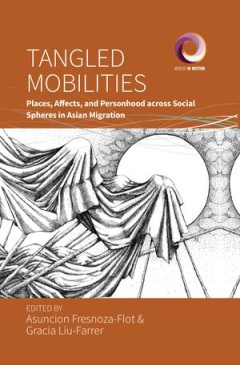
Tangled Mobilities: Places, Affects, and Personhood across Social Spheres in …
The emotional, social, and economic challenges faced by migrants and their families are interconnected through complex decisions related to mobility. Tangled Mobilities examines the different crisscrossing and intersecting mobilities in the lives of Asian migrants, their family members across Asia and Europe, and the social spaces connecting these regions. In exploring how the migratory process…
- Edition
- -
- ISBN/ISSN
- 9781800736689
- Collation
- -
- Series Title
- -
- Call Number
- 301 TAN t
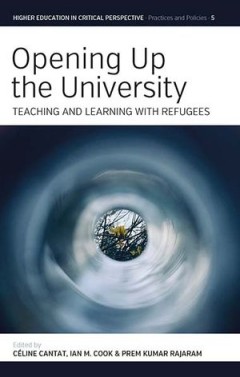
Opening Up the University: Teaching and Learning with Refugees
Through a series of empirically and theoretically informed reflections, Opening Up the University offers insights into the process of setting up and running programs that cater to displaced students. Including contributions from educators, administrators, practitioners, and students, this expansive collected volume aims to inspire and question those who are considering creating their own interv…
- Edition
- -
- ISBN/ISSN
- 9781800733138
- Collation
- -
- Series Title
- -
- Call Number
- 371 OPE o

Sacred Mound, Holy Rings Silbury Hill and the West Kennet Palisade
The excavations at Silbury Hill in the late 1960s were broadcast to the world on television and generated a huge amount of excitement, but until now have not been published. This report gives a full account of the excavation and discusses the archaeological and environmental evidence from the tunnel, the ditch section and the cuttings on the top of the mound, as well as the radiocarbon dates. N…
- Edition
- -
- ISBN/ISSN
- 9781789256475
- Collation
- -
- Series Title
- -
- Call Number
- -

Grazing Communities: Pastoralism on the Move and Biocultural Heritage Frictions
Pastoralism is a diffused and ancient form of human subsistence and probably one of the most studied by anthropologists at the crossroads between continuities and transformations. The present critical discourse on sustainable and responsible development implies a change of practices, a huge socio-economic transformation, and the return of new shepherds and herders in different European regions.…
- Edition
- -
- ISBN/ISSN
- 9781800736672
- Collation
- -
- Series Title
- -
- Call Number
- 301 GRA g

Indigenous Resurgence
From the Standing Rock Sioux Tribe’s resistance against the Dakota Access pipeline to the Nepalese Newar community’s protest of the Fast Track Road Project, Indigenous peoples around the world are standing up and speaking out against global capitalism to protect the land, water, and air. By reminding us of the fundamental importance of placing Indigenous politics, histories, and ontologies …
- Edition
- -
- ISBN/ISSN
- 9781800732452
- Collation
- -
- Series Title
- -
- Call Number
- -
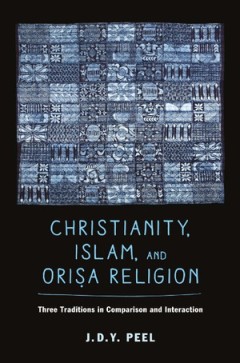
Christianity, Islam, and Orisa Religion Three Traditions in Comparison and I…
The Yoruba of southwestern Nigeria are exceptional for the copresence among them of three religious traditions: Islam, Christianity, and the indigenous orisa religion. In this comparative study, at once historical and anthropological, Peel explores the intertwined character of the three religions and the dense imbrication of religion in all aspects of Yoruba history up to the present. For over …
- Edition
- -
- ISBN/ISSN
- 9780520961227
- Collation
- -
- Series Title
- -
- Call Number
- -
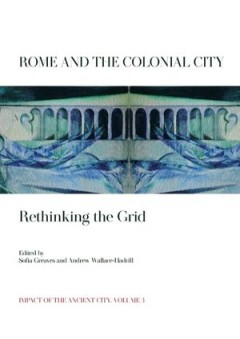
Rome and the Colonial City Rethinking the Grid
According to one narrative, that received almost canonical status a century ago with Francis Haverfield, the orthogonal grid was the most important development of ancient town planning, embodying values of civilization in contrast to barbarism, diffused in particular by hundreds of Roman colonial foundations, and its main legacy to subsequent urban development was the model of the grid city, sp…
- Edition
- -
- ISBN/ISSN
- 9781789257823
- Collation
- -
- Series Title
- -
- Call Number
- -
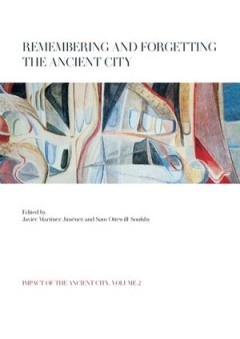
Remembering and Forgetting the Ancient City
The Greco-Roman world is identified in the modern mind by its cities. This includes both specific places such as Athens and Rome, but also an instantly recognizable style of urbanism wrought in marble and lived in by teeming tunic-clad crowds. Selective and misleading this vision may be, but it speaks to the continuing importance these ancient cities have had in the centuries that followed and …
- Edition
- -
- ISBN/ISSN
- 9781909254176
- Collation
- -
- Series Title
- -
- Call Number
- -

A Norse Farmstead in the Outer Hebrides Excavations at Mound 3, Bornais, Sou…
This volume examines South Uist, a small island in the soutern half of the Outer Hebrides. In the middle of the island lies the township of Bornais. This covers a particularly flat area of land which means that the three mounds can be seen all the more clearly. These mounds have been identified as being from the Viking period, with evidence of pre-Viking habitation at the site coming from Iron …
- Edition
- -
- ISBN/ISSN
- 9780000000902
- Collation
- -
- Series Title
- -
- Call Number
- -
 Computer Science, Information & General Works
Computer Science, Information & General Works  Philosophy & Psychology
Philosophy & Psychology  Religion
Religion  Social Sciences
Social Sciences  Language
Language  Pure Science
Pure Science  Applied Sciences
Applied Sciences  Art & Recreation
Art & Recreation  Literature
Literature  History & Geography
History & Geography